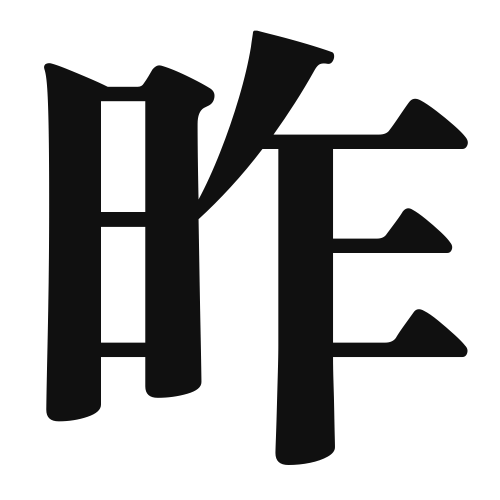1. Overview of Meaning
The kanji “昨” (saku) means “last” or “previous,” often referring to the day before today. It is commonly used in contexts related to time, such as yesterday or the past.
2. Formation and Radical
Formation of the Kanji: The kanji “昨” is a combination of two components: the radical “月” (which can represent “moon” or “flesh”) and the character “昔” (meaning “long ago” or “ancient”). This combination suggests a connection to time and the past.
Radical: The radical of “昨” is “月,” which is often associated with time and the passage of days.
3. Examples of Usage
Common Words and Phrases:
- 昨夜 (sakuya) – last night
- 昨年 (sakunen) – last year
Example Sentences in Daily Conversation:
- 昨日はとても寒かったです。 (Kinō wa totemo samukatta desu.) – It was very cold yesterday.
- 昨年の旅行は楽しかったです。 (Sakunen no ryokō wa tanoshikatta desu.) – The trip last year was fun.
4. Synonyms and Antonyms
Similar Kanji:
- 前 (zen) – meaning “before” or “in front of,” which can refer to a time before the present.
- 過去 (kako) – meaning “past,” which refers to a time that has already happened.
Antonyms:
- 未来 (mirai) – meaning “future,” which refers to a time that has yet to come.
5. Cultural and Historical Background
Connection to Japanese Culture: The concept of “last” or “previous” is significant in Japanese culture, where the past is often reflected upon in various traditions and practices.
Proverbs and Idioms:
- 「昨日の敵は今日の友」 (Kinō no teki wa kyō no tomo) – “Yesterday’s enemy is today’s friend,” which emphasizes the changing nature of relationships over time.
